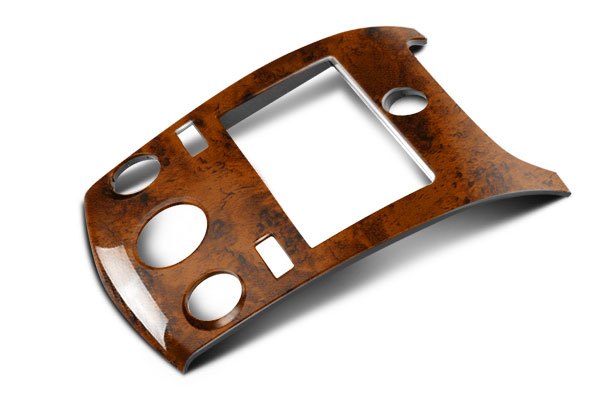-
سر پلوس عقب سمت شاگرد نیسان TSURU GS i 2021
2021 nissan tsuru gs i rear passenger side cv joint
سر پلوس عقب سمت شاگرد نیسان TSURU GS i 2020
2020 nissan tsuru gs i rear passenger side cv joint
سر پلوس عقب سمت شاگرد نیسان TSURU GS i 2019
2019 nissan tsuru gs i rear passenger side cv joint
سر پلوس عقب سمت شاگرد نیسان TSURU GS i 2018
2018 nissan tsuru gs i rear passenger side cv joint
سر پلوس عقب سمت شاگرد نیسان TSURU GS i 2017
2017 nissan tsuru gs i rear passenger side cv joint
سر پلوس عقب سمت شاگرد نیسان TSURU GS i 2016
2016 nissan tsuru gs i rear passenger side cv joint
سر پلوس عقب سمت شاگرد نیسان TSURU GS i 2015
2015 nissan tsuru gs i rear passenger side cv joint
سر پلوس عقب سمت شاگرد نیسان TSURU GS i 2014
2014 nissan tsuru gs i rear passenger side cv joint
سر پلوس عقب سمت شاگرد نیسان TSURU GS i 2013
2013 nissan tsuru gs i rear passenger side cv joint
سر پلوس عقب سمت شاگرد نیسان TSURU GS i 2012
2012 nissan tsuru gs i rear passenger side cv joint
سر پلوس عقب سمت شاگرد نیسان TSURU GS i 2011
2011 nissan tsuru gs i rear passenger side cv joint
سر پلوس عقب سمت شاگرد نیسان TSURU GS i 2010
2010 nissan tsuru gs i rear passenger side cv joint
سر پلوس عقب سمت شاگرد نیسان TSURU GS i 2009
2009 nissan tsuru gs i rear passenger side cv joint
سر پلوس عقب سمت شاگرد نیسان TSURU GS i 2008
2008 nissan tsuru gs i rear passenger side cv joint
سر پلوس عقب سمت شاگرد نیسان TSURU GS i 2007
2007 nissan tsuru gs i rear passenger side cv joint
سر پلوس عقب سمت شاگرد نیسان TSURU GS i 2006
2006 nissan tsuru gs i rear passenger side cv joint
سر پلوس عقب سمت شاگرد نیسان TSURU GS i 2005
2005 nissan tsuru gs i rear passenger side cv joint
دسته بندی ها
سر پلوس عقب سمت شاگرد نیسان TSURU GS i | قیمت سر پلوس عقب سمت شاگرد نیسان TSURU GS i | فروش سر پلوس عقب سمت شاگرد نیسان TSURU GS i | انواع سر پلوس عقب سمت شاگرد نیسان TSURU GS i | خرید سر پلوس عقب سمت شاگرد نیسان TSURU GS i در بیشتر کاربردها، اتصال داخلی سر پلوس عقب نیسان TSURU GS i | قیمت سر پلوس عقب نیسان TSURU GS i | فروش سر پلوس عقب نیسان TSURU GS i | انواع سر پلوس عقب نیسان TSURU GS i یک اتصال غوطه ور است که اجازه میدهد طول موثر میل جانبی به دلیل حرکت سیستم نیسان TSURU GS i | لوازم یدکی نیسان TSURU GS i | لوازم نیسان TSURU GS i | قطعات نیسان TSURU GS i | قطعات یدکی نیسان TSURU GS i | لوازم اسپرت نیسان TSURU GS i تعلیق تغییر کند. در کاربردهای محور جلو (یا هدایت کننده)، اتصال قایق بیرونی باید گشتاور را به طور موثر از طریق یک زاویه باز 52 درجه منتقل کند. در کاربردهای محور عقب، زوایای عملکرد مفصل بسیار کمتر است. اگر هنگام قرار دادن گیربکس در دنده محرک، یا در حین شتاب یا کاهش سرعت، صدایی به هم میشنوید/احساس میکنید، این ممکن است به یک اتصال فرسوده یا آسیب دیده اشاره کند. به خاطر داشته باشید که همان نوع صدا/احساس میتواند در اثر واکنش بیش از حد در دندههای دیفرانسیل ایجاد شود اگر خودرو دارای FWD (محرک چرخ جلو) است، مشکوک به یک مفصل داخلی باشید. اگر خودرو دارای (محرک چرخ عقب) با سیستم تعلیق عقب مستقل است که دارای اتصالات است، به اتصالات داخلی یا خارجی مشکوک شوید. به طور طبیعی، همین وضعیت ممکن است ناشی از میل محرک اولیه یا اتصالات ، میله های داخلی فرسوده یا آسیب دیده یا سایر قطعات تعلیق فرسوده باشد. اگر مشکوک به داخلی در محور محرک (FWD یا RWD) هستید، سعی کنید خودرو را در هنگام شتاب و کاهش سرعت به سمت عقب برانید. اگر مشکل بیشتر قابل توجه باشد، احتمالاً علت یک یا هر دو مفصل داخلی است.اگر مشتری از لرزش یا لرزش در حین شتاب شکایت داشته باشد، این ممکن است نشان دهنده ساییدگی یا آسیب دیدگی مفصل فرورفتگی درونی باشد. سایر علل احتمالی عبارتند از بازی بیش از حد در اتصالات داخل یا خارج، یا مشکل در پایههای موتور و/یا گیربکس یا بوشهای تسمه گشتاور (بازرسی برای آسیبدیدگی، شل شدن پایههای لاستیکی یا خراب شدن پایه موتور/ترانس). توجه: اگر خودرو دچار نقص "کشش" شده است (مجموعه محور در مفصل داخلی جدا می شود یا از گیربکس خارج می شود)، ممکن است نتیجه یک برخورد قبلی باشد. نگاهی دقیق به موتور و پایههای ترانس بیندازید و قطعات تعلیق خراب یا شکسته را بررسی کنید. به طور طبیعی، در صورت وجود هر گونه پایه یا اجزای تعلیق به شدت فرسوده، این مشکلات باید قبل از نصب یک مجموعه شافت جایگزین اصلاح شوند. اگر مشتری از لرزشی که با سرعت خاصی شروع می شود و در سرعت های بالاتر افزایش می یابد شکایت دارد، به احتمال زیاد مشکل مربوط به اتصال یا عدم تعادل شفت مشترک نیست. علل محتمل تر عبارتند از عدم تعادل چرخ، خروج شعاعی لاستیک، چرخ خم شده و غیره.
...............................................................................................................................
nissan tsuru gs i rear passenger side cv joint | nissan tsuru gs i rear passenger side cv joint sale | nissan tsuru gs i rear passenger side cv joint buy | nissan tsuru gs i rear passenger side cv joint price In most applications, the internal connection nissan tsuru gs i | nissan tsuru gs i parts | nissan tsuru gs i accessory | nissan tsuru gs i parts sale | nissan tsuru gs i parts buy | nissan tsuru gs i parts price is an immersed connection that allows the effective length of the lateral shaft to change due to the movement of the suspension. In front-axle (or steering) applications, the outer boat connection must effectively transmit torque through an open angle of 52 degrees. In rear axle applications, the joint performance angles are much smaller. If you hear / feel a sound when the gearbox is engaged, or while accelerating or decelerating, this may indicate a worn or damaged connection. Keep in mind that the same kind of sound / sensation can be caused by overreacting to the differential gears. If the car has FWD (front wheel drive), be suspicious of an internal joint. If the car has (rear wheel drive) with independent rear suspension that has connections, suspect internal or external connections. Naturally, this condition may be caused by the primary drive shaft or fittings, worn or damaged internal rods, or other worn suspension components. If you suspect internal drive shaft (FWD or RWD), try driving the car backwards when accelerating and decelerating. If the problem is more significant, it is probably due to one or both internal joints. If the customer complains of tremors or tremors during acceleration, this may indicate wear or damage to the internal recess joint. Other possible causes include excessive play on internal or external connections, or problems with engine mounts and / or gearboxes or torque belt bushes (inspection for damage, loose rubber mounts, or damaged motor / transformer mount). Note: If the vehicle has a "traction" defect (the axle assembly detaches at the inner joint or leaves the gearbox), it may be the result of a previous collision. Take a close look at the motor and transformer mounts and check for damaged or broken suspension parts. Naturally, if there are any severely worn mounts or suspension components, these problems must be rectified before installing a replacement shaft assembly. If the customer complains of a vibration that starts at a certain speed and increases at higher speeds, it is likely that the problem is not related to a common shaft connection or imbalance. More likely causes include wheel imbalance, radial rubber outage, bent wheels, and so on.
https://www.khodroid.com/nissan-tsuru-gs-i-for-rear-passenger-side-cv-joint
مارا دنبال کنید
Copyright © 2016-2020 KHODROID.com. All rights reserved.
طراحی سایت توسط نونگار پردازش











